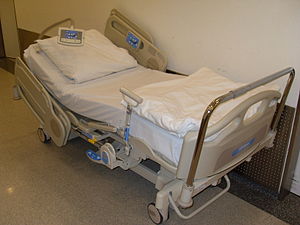The Supreme Court and Health Care
Mar 29
With the case of Florida vs. Department of Health and Human Services, the circus came to Washington this week in and outside of the Supreme Court. Now that the arguments are over we will sit back and debate over things ad nausea until the opinion of the court is released, which is not expected until sometime in June. It basically will come down to how Justice Kennedy will decide upon the issue of the individual mandate. It is going to be a 5-4 decision either way, and I am really unsure at this point how things will fall in the end.
On one hand you had Kennedy discussing an analogy of burial insurance on the arguments over the individual mandate. Would you go up to a young person and say that you are going to die one day so you must buy this burial insurance policy from me to cover your expenses. Now I liked this analogy, at least in the fact that it was original, unlike that partisan hack Justice Scalia and his talking points handed broccoli analogy. Then on the other hand, later in his talks Kennedy talked about maybe healthcare being different.
Like I said at this point I have no idea how his vote is going to sway. I do know though that depending on how the majority opinion gets worded and whether they go all Bush v. Gore and state that this cannot be used in any other case, it is going to have a profound effect on many things if it is a 5-4 decision striking down the individual mandate.
Like I said it all depends on how the opinion comes out, but after decades of trying to do so, the Republicans have backed into a way of getting rid of Social Security and Medicare. Based on the Justices’ line of thinking on those obviously voting to get rid of the mandate both Social Security and Medicare can be deemed unconstitutional. What gives the government the right to come to me as a young worker and say you must put side this money for later on in life for you and to pay those older workers currently receiving the benefits of this if I choose not to. Hey I’m young I can do that later, if I really want to. Hell even the Republicans tired old private accounts argument would be unconstitutional. So you are going to force me to put my money into the market? What gives you the right? Then the same applies on to Medicare as well. What gives the Government the right to force me to put money forth for older people’s medical coverage now and mine in the future if I really don’t want to? Under the argument set forth in the Justices’ line of questioning this rational would be the same for these as well.
Another effect that a ruling that strikes down the law would have is disturbing as well. If you don’t like something the opposition party writes into law, have it brought to the court to strike down. Say Mittens or Santorum by some evil joke of God wins the election. A state with liberal control will just bring its argument against the law before the court. It’s a long shot in any circumstance to succeed, but right now it’s a 4-4 split of hard conservative to moderate liberal on the Supreme Court. Then with Kennedy and is usual swing vote there is a shot you can get things done and with this precedent set try and try again will constantly be the partisan fight from now on to get rid of whatever is passed that you don’t like.
Maybe Gingrich is right. Did I just say those words; I am throwing up in my mouth just a little. Anyways, I have been thinking this all day in hearing the arguments on what the Justices felt on different parts of the law if the individual mandate was struck down. We really do need to just arrest these partisan Judges from legislating from the bench. Your job in my opinion is over with you striking down the individual mandate, you don’t have the authority on which legislation is worthy to be kept or not, or what can be salvaged for cost reasons. That is Congress’ job, not the Judicial branch’s
job.
 RSS
RSS
